
Building Simulation
Scope & Guideline
Advancing Energy Efficiency in Building Practices
Introduction
Aims and Scopes
- Building Energy Performance:
Focuses on optimizing energy use in buildings through simulations that analyze energy consumption, efficiency measures, and renewable energy integration. - Indoor Environmental Quality (IEQ):
Researches factors affecting indoor environments, such as air quality, thermal comfort, and acoustic performance, utilizing simulation tools to enhance occupant health and comfort. - Ventilation and Airflow Dynamics:
Explores the dynamics of airflow in buildings, assessing ventilation strategies and their effectiveness in controlling pollutants and providing comfort. - Simulation Methodologies and Tools:
Develops and evaluates new simulation tools and methodologies that improve the accuracy and reliability of building performance predictions. - Sustainable Design and Retrofit Strategies:
Investigates energy-efficient design strategies and retrofitting techniques aimed at reducing the carbon footprint of existing buildings. - Climate Adaptation and Resilience:
Analyzes how buildings can adapt to changing climate conditions, focusing on strategies that enhance resilience against extreme weather events.
Trending and Emerging
- Machine Learning and AI in Building Simulation:
The integration of machine learning and artificial intelligence techniques is increasingly being utilized for predictive modeling, fault diagnosis, and optimization of building energy systems. - Smart Building Technologies:
Research on smart building technologies, including IoT devices and automated control systems, is gaining momentum, focusing on enhancing energy efficiency and occupant comfort. - Health and Wellbeing in Building Design:
There is a growing emphasis on health and wellbeing in building design, with research exploring how building environments affect mental and physical health, particularly in the context of post-pandemic recovery. - Resilient and Adaptive Design:
Emerging themes focus on designing buildings that can adapt to climate change, including strategies for energy efficiency and resilience to extreme weather events. - Data-Driven Decision Making:
The use of big data analytics and cloud computing for real-time monitoring and optimization of building performance is increasingly trending, enabling smarter energy management practices.
Declining or Waning
- Traditional HVAC Systems:
Research on conventional HVAC systems is declining as newer technologies and smart systems are increasingly being developed, emphasizing energy efficiency and occupant-centric designs. - Static Building Design Approaches:
There is a waning interest in static design methodologies that do not account for dynamic factors such as occupant behavior and environmental changes, as adaptive and responsive designs gain traction. - Generalized Energy Modeling:
The focus on broad, generalized energy modeling without specific contextual applications is diminishing, with a shift towards more detailed, case-specific studies that incorporate local climate and building types. - Single-Factor Performance Metrics:
The reliance on single performance metrics for assessing building efficiency is decreasing, as multi-faceted approaches that consider various interrelated factors are becoming more prevalent. - Conventional Materials and Techniques:
Research into traditional building materials and construction techniques is declining, as innovative materials and construction methods that support sustainability and energy efficiency are increasingly favored.
Similar Journals

Russian Journal of Building Construction and Architecture
Unlocking Insights for a Resilient Built EnvironmentRussian Journal of Building Construction and Architecture (ISSN: 2542-0526; E-ISSN: 2542-0526), published by the esteemed Voronezh State Technical University, serves as a vital platform for disseminating innovative research and practical applications in the fields of building construction and architecture. This journal, situated in Voronezh, Russia, aims to explore both the theoretical and empirical aspects of contemporary architecture and construction practices, fostering a robust dialogue among researchers, professionals, and academics. With an emphasis on open access to knowledge, the journal significantly contributes to global discourse by ensuring that findings are accessible to a wide audience. Underlining the importance of sustainable development and cutting-edge technologies in construction, the journal strives to publish high-quality research that addresses the challenges faced in today’s building environment, making it an invaluable resource for those committed to advancing the industry.
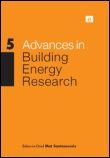
Advances in Building Energy Research
Bridging Research and Practice for Sustainable Building SolutionsAdvances in Building Energy Research is a pivotal journal dedicated to the scholarly exploration of energy efficiency and sustainable practices within the building and construction sector. Published by Taylor & Francis Ltd from the United Kingdom, this journal provides a rich platform for researchers, industry professionals, and students interested in the latest advancements and methodologies that drive energy conservation in architecture and engineering. With an impressive 2023 Scopus ranking of #64 out of 223 in the Building and Construction category and a notable Q2 category quartile, the journal occupies a significant position in its field, emphasizing high-quality, peer-reviewed research that meets the needs of a global audience. Though it operates under a subscription model, its contributions are invaluable for advancing knowledge that addresses the urgent challenges of energy consumption and sustainability in built environments. Spanning research published from 2007 to 2024, this journal continues to be an essential resource for those seeking innovative solutions and insights into building energy performance.
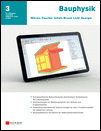
Bauphysik
Bridging Theory and Practice in Building ConstructionBauphysik, published by ERNST & SOHN, is a prestigious journal dedicated to the fields of architecture, building construction, and environmental engineering. With a strong focus on the principles of building physics, Bauphysik serves as a key platform for researchers, professionals, and students alike, disseminating vital information and advancements within the industry. The journal, boasting an ISSN of 0171-5445 and an E-ISSN of 1437-0980, is well-regarded with a categorization in the Q2 quartile in Architecture and Q4 quartiles in Building and Construction and Environmental Engineering as of 2023. Its Scopus ranks further highlight its impact within the community, with rankings of 83/189 in Architecture, 179/223 in Building and Construction, and 167/197 in Environmental Engineering. Despite its lack of open access options, the journal's retrospective convergence from 1982 to 2024 marks its long-standing influence in advancing building physics research. With a dedicated readership, Bauphysik encourages the exploration and sharing of innovative solutions to contemporary challenges in the built environment.

Journal of Green Building
Pioneering Research in Sustainable Design and Building PracticesJournal of Green Building, with its ISSNs 1552-6100 and 1943-4618, is a premier academic journal published by COLLEGE PUBLISHING in the United States. This journal, established in 2006 and continuing through 2024, serves as a vital platform for the dissemination of research on sustainable architecture, building technologies, and environmental design. With its current impact factor signifying a robust academic contribution, it is categorized in Q2 in Architecture and Q3 across several other disciplines, including Building and Construction, Environmental Engineering, and Public Health. The journal’s Scopus rankings demonstrate its strong positioning in the engineering and environmental science communities, making it an essential resource for researchers and professionals aiming to advance knowledge in green building practices. While it is not an Open Access journal, the rich content is pivotal for those involved in the critical intersection of sustainability and construction science. Whether you are a seasoned professional or a dedicated student, the Journal of Green Building offers invaluable insights that drive future innovations in eco-friendly building environments.

Journal of Building Engineering
Elevating Standards in Building TechnologyWelcome to the Journal of Building Engineering, a premier platform for the dissemination of innovative research in the fields of Architecture, Building and Construction, Civil and Structural Engineering, Mechanics of Materials, and Safety, Risk, Reliability and Quality. Published by ELSEVIER and based in the Netherlands, this journal has solidified its reputation as a leader in the field, proudly achieving a prestigious Q1 ranking across multiple categories as of 2023. With a remarkable impact in Scopus, including being ranked #1 in Architecture and consistently placing within the top 20 in other critical disciplines, the journal is dedicated to fostering high-quality research that addresses contemporary challenges in building technology and engineering practices. The E-ISSN 2352-7102 further facilitates access to groundbreaking articles from 2015 to 2024, making it a vital resource for researchers, industry professionals, and students alike. Embrace the opportunity to engage with cutting-edge studies that not only contribute to academic dialogue but also influence practical applications in the rapidly evolving landscape of building engineering.
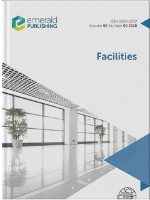
Facilities
Exploring the synergy between design, construction, and ergonomic excellence.Facilities is an esteemed international journal, published by Emerald Group Publishing Ltd, dedicated to advancing the scholarly discourse in the multifaceted areas of architecture, building construction, and human factors and ergonomics. Since its inception in 1983, the journal has celebrated over four decades of research contributions, maintaining a robust E-ISSN of 1758-7131 while its print identifier is ISSN 0263-2772. With its distinguished status, it ranks in the Q1 quartile in Architecture and is positioned in the Q2 quartile for both Building and Construction and Human Factors and Ergonomics in 2023. The journal’s Scopus rankings highlight its relevance, achieving a remarkable 88th percentile in Architecture and 68th percentile in Building and Construction. Although not an Open Access publication, Facilities provides vital insights and research findings that cater to academics, practitioners, and students alike, fostering innovation and informed practices across these dynamic fields. Its commitment to high-quality scholarship makes it an indispensable resource for anyone engaged in improving the interaction between people and the built environment.
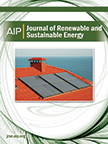
Journal of Renewable and Sustainable Energy
Illuminating Pathways to Energy EfficiencyThe Journal of Renewable and Sustainable Energy, published by AIP Publishing, stands at the forefront of research in the fields of renewable energy and sustainable practices. With an ISSN of 1941-7012, this journal aims to foster innovative research and exchange of knowledge on sustainable technologies and methodologies that contribute to environmental conservation and energy efficiency. Achieving a prestigious Q2 ranking in the category of Renewable Energy, Sustainability, and the Environment, it ranks 135 out of 270 journals in Scopus, signifying its impactful contributions to the field. The journal, active from 2010 to 2024, provides a platform for authors, analysts, and practitioners to disseminate significant findings that can shape future environmental policies and energy frameworks. Although not currently an Open Access publication, it remains an essential resource for researchers dedicated to advancing sustainable development and energy solutions.

Engineering Reports
Connecting researchers to the forefront of engineering knowledge.Engineering Reports is a premier open-access journal published by Wiley, dedicated to advancing the fields of Engineering and Computer Science. Since its inception in 2019, this journal has rapidly gained recognition, achieving a commendable Q2 ranking in both the engineering and computer science categories in 2023, evidencing its impactful contributions to the scientific community. With an impressive Scopus rank of #70/307 in General Engineering and #63/232 in General Computer Science, the journal is well-positioned to disseminate cutting-edge research and foster innovation. Researchers, professionals, and students will find value in its comprehensive scope, which includes emerging technologies and interdisciplinary studies, making it an essential resource for anyone involved in these dynamic fields. Accessible online, Engineering Reports aims to bridge the gap between complex engineering theories and practical applications, enhancing collaboration and knowledge sharing globally.

BUILDING ACOUSTICS
Shaping the Future of Building AcousticsBuilding Acoustics, published by SAGE Publications Inc, is a distinguished journal that serves as a critical resource in the fields of acoustics, building construction, and mechanical engineering. With an ISSN of 1351-010X and an E-ISSN of 2059-8025, this journal has maintained a strong reputation since its inception in 1997, featuring rigorous peer-reviewed research that provides valuable insights into the acoustic properties of buildings and environments. With a commendable Q2 ranking in its categories and a notable standing within the Scopus Ranks, this journal plays a pivotal role in advancing knowledge and practice in its field. Researchers, professionals, and students are invited to engage with cutting-edge studies that address crucial aspects of sound control, environmental noise, and sustainable architectural design. Although not an Open Access journal, Building Acoustics ensures accessibility through various institutional affiliations and library provisions, solidifying its position as an essential publication for those dedicated to enhancing the acoustic performance of built environments.
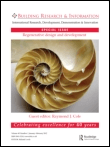
BUILDING RESEARCH AND INFORMATION
Fostering interdisciplinary insights for the built environment.BUILDING RESEARCH AND INFORMATION is a premier academic journal dedicated to the advancement of knowledge in the fields of Building and Construction as well as Civil and Structural Engineering. Published by Routledge Journals, Taylor & Francis Ltd, this journal boasts an impressive Q1 ranking in both categories as of 2023, emphasizing its reputation for disseminating high-quality research. Established in 1991, it has continually provided a vital platform for scholarly dialogue on innovative building practices, sustainable construction techniques, and cutting-edge engineering solutions, with ongoing contributions accepted until 2024. The journal is renowned for its extensive insights and interdisciplinary approach, and with a Scopus rank placing it in the 88th percentile for both building and construction engineering and civil and structural engineering, it presents an exceptional opportunity for researchers, professionals, and students to engage with and publish influential findings. While the journal is not open access, it remains a cornerstone for those aiming to deepen their understanding of contemporary challenges and trends in the built environment.